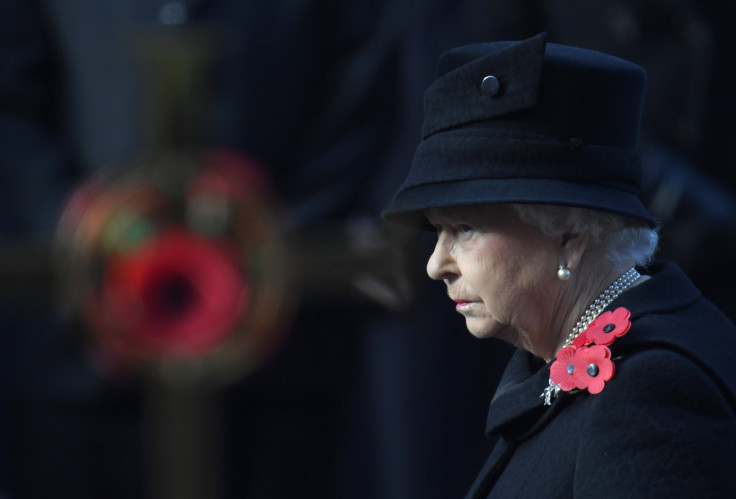What Does The Royal Family Do? Queen Elizabeth, William And Kate Provide Unity, Monarchy Proponents Say

Two weeks have passed since Queen Elizabeth II has made a public appearance, as a “heavy cold” has forced her to skip annual church ceremonies on both Christmas Day and New Year’s Eve. The development has led many to wonder whether the 90-year-old ruler would abdicate the throne for reasons related to her health, and what will happen if she is unable to fully recover from her illness.
But some have pondered a separate question: What purpose does the royal family serve in the first place?
Noting that each royal transition brings with it a tide of “renewed scrutiny” of the monarchy by the media, U.K.-based GQ political correspondent Rupert Myers reflected on the monarchy’s mostly symbolic importance.
“Our monarch is no mere celebrity or star, she is the embodiment of our national identity,” Myers wrote in a Dec. 20 piece for the magazine. “Our national life is the Queen’s life: she addresses us on Christmas Day [and] appears on the face of postage stamps, and we carry her image with us from infancy to death on every coin and every note in our pockets. To come face to face with the Queen is to encounter the near-mythical bedrock of our national identity.”
Indeed, the vast majority of Elizabeth and her family’s duties were those of an apolitical figurehead, according to the monarchy’s website, which states that “although the sovereign no longer has a political or executive role, he or she continues to play an important part in the life of the nation.” More specifically, her roles include formalizing Parliamentary legislation, meeting informally with the prime minister and opening each new session of the government body. Along with her husband, 95-year-old Prince Philip; her son, Prince Charles; his wife, Camilla, Duchess of Cornwall; her two grandsons, Prince Harry and Prince William; and the wife of the latter, Catherine, Duchess of Cambridge, she often leads state ceremonies on such holidays as National Remembrance Day, meets with state dignitaries, donates to various charities, doles out awards and hosts garden parties.
For these purely ceremonial tasks, the monarchy enjoys a sturdy and growing approval rating, with more than three-quarters of Britons preferring to keep the system in place. Conversely, just 17 percent have said they'd like to abolish it, according to February data from U.K. market research organization Ipsos MORI. That was up from 69 percent in favor of the monarchy and down from 18 percent in favor of a republic, in 1993.
The public opinion remained despite the cost of these ceremonies and symbolic acts to British taxpayers—which rose to the equivalent of $55.89 million for the monarchy’s 2017 budget, up from $52.46 for the previous year and $35.66 in 2012, the Guardian reported.
Still, some have cited the need for a sense of stability and unity largely provided by the monarchy since the start of Elizabeth’s reign in 1952.
As BBC editor Mark Easton wrote in a column around the time of the queen’s Diamond Jubilee, an extravagant river ceremony celebrating her 60 year reign, her ascendance to the throne came at a time when “war and financial hardship had combined to shake up and challenge ancient orthodoxies,” and “values and traditions which underpinned family and community life were also changing rapidly.”
Easton continued: “Monarchy represented a bulwark against rapid and scary change. Sixty years after our Queen assumed the throne, many of those same anxieties remain.”
In the wake of Britain’s vote to leave the European Union and Scotland politicians’ unsuccessful campaigns to leave the U.K., John Lloyd, a senior research fellow at the Reuters Institute for the Study of Journalism at Oxford University, wrote in a Dec. 29 op-ed for the newswire that the royal family's importance as a unifying force had only grown.
“A dis-united Britain would be a weaker member of the Western alliance,” Lloyd wrote. “It would, unwittingly, have dropped the pilot—a pilot who was not supposed to direct the course of the ship of state, but made its progress more stately.”
© Copyright IBTimes 2024. All rights reserved.






















